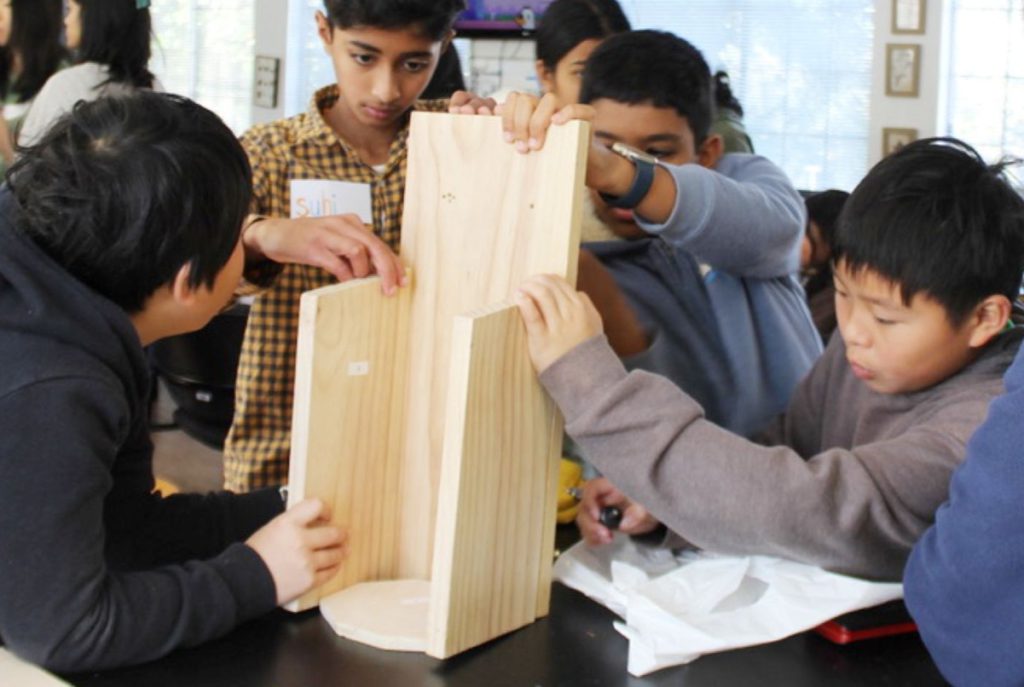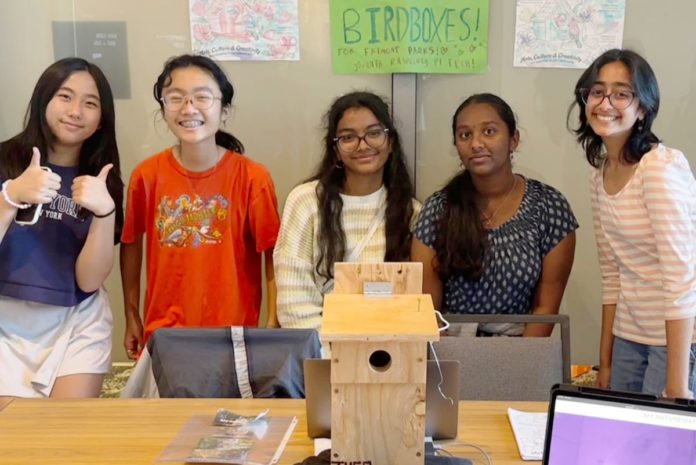With issues such as climate change, rapid deforestation and increased pollution dominating the global headlines, one local organization composed of young women is on a mission to do something about that: one nest at a time.
Founded in early 2024, Birdboxers is the founding project of Eco Innovate, a female-led youth organization for Fremont Unified School District (FUSD) students. Birdboxers utilizes cutting-edge technology to safely monitor the everyday habits of local bird populations in efforts to sustain them.
“We initially began as a student club at Irvington High School but since then we’ve grown beyond that to serve the entire FUSD and local climate literacy boards as well,” says co-founder and chief executive officer Sophie Le.
Bird boxes, small wooden boxes often built to house bird nests, can be traced back as early as the 15th century when it became common to build them across Europe and Asia. Since then, bird boxes have mostly remained simple structures until researchers realized that surveillance technology could be stored inside these compartments with the goal of monitoring birds without startling or scaring them away.

“Using the technology we have today, we’ve installed LED infrared cameras in our bird boxes that allow us to study local species such as the Western Bluebird and the California Tree Swallow,” adds Le.
“Our cameras take a photo of the birds nesting in our boxes every three minutes, 24/7 and the frequency of data collected is vital,” says co-founder and chief corporate officer Harshitha Loganathan.
“One thing we’ve noticed with other bird observations is that sometimes photos and other recordings would only be taken once a week and then by the next time media was taken the birds may have either died or migrated so taking more photos allows us to close the gap and yield more accurate data,” adds Loganathan.
While it is still early in the year, Birdboxers has plans for 2025 to build up to 30 more surveillance boxes with the hopes of having them incorporated by the California Regional Parks as well as the U.S. National Parks.
“As nesting season opens in the spring, we plan to synthesize data collected from the bird boxes and to collaborate with professional field ornithologists, machine learning specialists and volunteers to make our vision a reality,” exclaims Le.
According to Le, the data Birdboxers has collected thus far has been shared with organizations such as the California Bluebird Recovery Program and Cornell Lab.
In addition to sharing crucial data about birds’ nesting, mating and migratory habits, Eco Innovate has partnered with elementary schools and students at the fifth- and sixth-grade levels within the FUSD to encourage eco-friendly habits and lifestyles early in life.
“Monitoring and preserving bird populations isn’t something we do just because we think ‘birds are cool’ —which we do,” says Le. “Birds are a ‘Keystone Species’ meaning that their health impacts other species, it impacts the health of the water around us and the broader ecosystem as a whole. We may have issues such as climate change and deforestation but we can empower the next generation to utilize their curiosity for nature and to educate others.”




